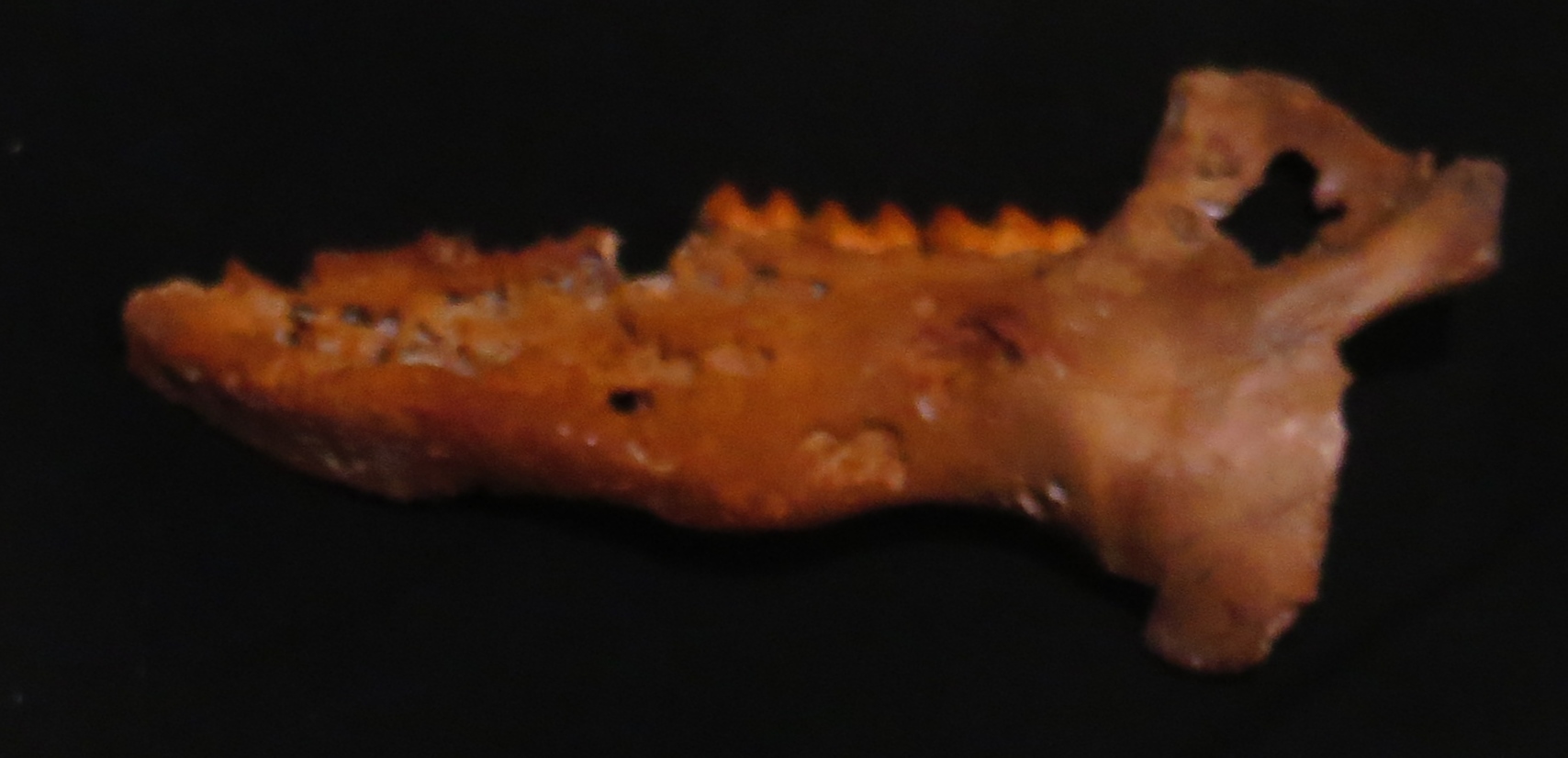Sistema Ox Bel Ha on:
[Wikipedia]
[Google]
[Amazon]
Sistema Ox Bel Ha (from
 A new genus and species of extinct
A new genus and species of extinct
Mexico’s Yucatan Peninsula Reveals a Cryptic Methane-Fueled Ecosystem in Flooded Caves
USGS
Mayan
Mayan most commonly refers to:
* Maya peoples, various indigenous peoples of Mesoamerica and northern Central America
* Maya civilization, pre-Columbian culture of Mesoamerica and northern Central America
* Mayan languages, language family spoken ...
meaning "Three Paths of Water"; short Ox Bel Ha) is a cave
A cave or cavern is a natural void in the ground, specifically a space large enough for a human to enter. Caves often form by the weathering of rock and often extend deep underground. The word ''cave'' can refer to smaller openings such as sea ...
system in Quintana Roo
Quintana Roo ( , ), officially the Free and Sovereign State of Quintana Roo ( es, Estado Libre y Soberano de Quintana Roo), is one of the 31 states which, with Mexico City, constitute the 32 federal entities of Mexico. It is divided into 11 mu ...
, Mexico
Mexico (Spanish: México), officially the United Mexican States, is a country in the southern portion of North America. It is bordered to the north by the United States; to the south and west by the Pacific Ocean; to the southeast by Guatema ...
. It is the 2nd longest explored underwater cave in the world and ranks fourth including dry caves. As of January 2022 the surveyed length is of underwater passages. There are more than 140 cenote
A cenote ( or ; ) is a natural pit, or sinkhole, resulting from the collapse of limestone bedrock that exposes groundwater. The regional term is specifically associated with the Yucatán Peninsula of Mexico, where cenotes were commonly used for ...
s in the system.
Discoveries
The Naranjal subsystem is part of Sistema Ox Bel Ha. Three prehistoric human remains have been found within the subsystem. The Jailhouse cenote, or Las Palmas, is the entrance to the locations of the Muknal and Las Palmas caves. The skeleton of an 18 to 20-year-old woman, ''Eve of Naharon
Eve of Naharon ( es, Eva de Naharon) is the skeleton of a 20– to 25-year-old human female found in the ''Naharon'' section of the underwater cave ''Sistema Naranjal'' in Mexico near the town of Tulum, around south west of Cancún. The Naranjal ...
'', (13,454±117 cal BP) was discovered at a location around away from the Jailhouse cenote entrance. The skeleton of a 44 to 50-year-old woman, ' (8,937±203 cal BP) was found at a location around away from the Jailhouse cenote entrance. The Muknal cave, part of the Naranjal subsystem, contained the remains of a 40 to 50-year-old man, the ''Muknal Grandfather'' (9,600 cal BP). Unlike the other two skeletons in the subsystem, the ''Muknal Grandfather'' shows evidence of secondary burial
The secondary burial (German: ''Nachbestattung'' or ''Sekundärbestattung''), or “double funeral”Duday, Henri, et al. The Archaeology of the Dead: Lectures in Archaeothanatology. United Kingdom, Oxbow Books, 2009. (not to be confused with do ...
. Analysis of these skeletons suggests that Ox Bel Ha was likely used as an important site for ritual burial
Burial, also known as interment or inhumation, is a method of final disposition whereby a dead body is placed into the ground, sometimes with objects. This is usually accomplished by excavating a pit or trench, placing the deceased and objec ...
.
 A new genus and species of extinct
A new genus and species of extinct peccary
A peccary (also javelina or skunk pig) is a medium-sized, pig-like hoofed mammal of the family Tayassuidae (New World pigs). They are found throughout Central and South America, Trinidad in the Caribbean, and in the southwestern area of North ...
, ''Muknalia minima'', was identified from a fossil mandible found in the Muknal cave of the Ox Bel Ha system. However, it was subsequently recognised that this was a junior synonym
The Botanical and Zoological Codes of nomenclature treat the concept of synonymy differently.
* In botanical nomenclature, a synonym is a scientific name that applies to a taxon that (now) goes by a different scientific name. For example, Linna ...
of the collared peccary
The collared peccary (''Dicotyles tajacu'') is a species of artiodactyl (even-toed) mammal in the family Tayassuidae found in North, Central, and South America. It is the only member of the genus ''Dicotyles''. They are commonly referred to as ...
.
See also
*List of caves in Mexico
This is a list of caves in Mexico (not just archaeological):
Archaic era
* Guila Naquitz Cave (Oaxaca, c.8000-6700BC)
* Nogales Cave (Tamaulipas, c. 5000-3000 BC)
* Coxcatlan Cave (Tehuacan Valley, Puebla, 5000-3400 BC)
* La Perra Cave (Ta ...
*List of longest caves
This list of longest caves includes caves in which the combined length of documented passageways exceeds . In some of these caves, passageways are still being discovered.
Geographical distribution
Caves are found around the world. The largest ...
External links
Mexico’s Yucatan Peninsula Reveals a Cryptic Methane-Fueled Ecosystem in Flooded Caves
USGS
References
Sistema Sac Actun and Sistema Dos Ojos Caves of Mexico Landforms of Quintana Roo Limestone caves Natural history of Quintana Roo Sinkholes of Mexico Tulum (municipality) Tourist attractions in Quintana Roo Underwater diving sites in Mexico {{Caving-stub